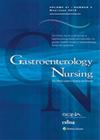Saija Pauliina Sihvola, Lauri Markus Kuosmanen, Santtu Juhani Mikkonen, Tarja Anneli Kvist
下载PDF
{"title":"Resilience and Counseling Received by Colorectal Cancer Patients During a 1-Year Follow-Up: PHASE II of a Longitudinal Study.","authors":"Saija Pauliina Sihvola, Lauri Markus Kuosmanen, Santtu Juhani Mikkonen, Tarja Anneli Kvist","doi":"10.1097/SGA.0000000000000883","DOIUrl":null,"url":null,"abstract":"<p><p>Longitudinal studies on the resilience of colorectal cancer patients and the counseling they receive are rare. This study's purpose was threefold: to describe the resilience and received counseling of colorectal cancer patients after 1 year post surgery; the relationships between background characteristics, resilience, and counseling; and the changes that occurred in the findings. Data were collected in Finland in 2020-2023 after 1 month (phase I) and a year (phase II) of the colorectal cancer surgery using the Connor-Davidson Resilience Scale © and the Counseling Quality Instrument © . A total of 103 participants completed phase I, 51 participants completed phase II, and 41 participants completed both phases. Phase II of the study showed that among the respondents (n = 51), resilience was low (mean 73.3) and significantly related to marital status ( p = .007). Most (75%) evaluated counseling as good, and the evaluations were similar in both study phases (n = 103, n = 51). The lowest scores were for psychosocial support, patient-centeredness, and goal-directedness. Knowledge of the illness and its care, general health and patient attitudes, and disease treatment and self-care decreased significantly within the year (n = 41). Changes in resilience were not found (n = 41). The findings suggest that colorectal cancer patients might need more psychosocial support. Patients' care should be carefully planned to better address their needs.</p>","PeriodicalId":12666,"journal":{"name":"Gastroenterology Nursing","volume":" ","pages":"288-298"},"PeriodicalIF":0.8000,"publicationDate":"2025-07-01","publicationTypes":"Journal Article","fieldsOfStudy":null,"isOpenAccess":false,"openAccessPdf":"https://www.ncbi.nlm.nih.gov/pmc/articles/PMC12316116/pdf/","citationCount":"0","resultStr":null,"platform":"Semanticscholar","paperid":null,"PeriodicalName":"Gastroenterology Nursing","FirstCategoryId":"3","ListUrlMain":"https://doi.org/10.1097/SGA.0000000000000883","RegionNum":4,"RegionCategory":"医学","ArticlePicture":[],"TitleCN":null,"AbstractTextCN":null,"PMCID":null,"EPubDate":"2025/7/29 0:00:00","PubModel":"Epub","JCR":"Q4","JCRName":"GASTROENTEROLOGY & HEPATOLOGY","Score":null,"Total":0}
引用次数: 0
引用
批量引用
Abstract
Longitudinal studies on the resilience of colorectal cancer patients and the counseling they receive are rare. This study's purpose was threefold: to describe the resilience and received counseling of colorectal cancer patients after 1 year post surgery; the relationships between background characteristics, resilience, and counseling; and the changes that occurred in the findings. Data were collected in Finland in 2020-2023 after 1 month (phase I) and a year (phase II) of the colorectal cancer surgery using the Connor-Davidson Resilience Scale © and the Counseling Quality Instrument © . A total of 103 participants completed phase I, 51 participants completed phase II, and 41 participants completed both phases. Phase II of the study showed that among the respondents (n = 51), resilience was low (mean 73.3) and significantly related to marital status ( p = .007). Most (75%) evaluated counseling as good, and the evaluations were similar in both study phases (n = 103, n = 51). The lowest scores were for psychosocial support, patient-centeredness, and goal-directedness. Knowledge of the illness and its care, general health and patient attitudes, and disease treatment and self-care decreased significantly within the year (n = 41). Changes in resilience were not found (n = 41). The findings suggest that colorectal cancer patients might need more psychosocial support. Patients' care should be carefully planned to better address their needs.
结直肠癌患者在1年随访期间的恢复力和咨询:一项纵向研究的II期。
对结直肠癌患者的恢复力和他们接受的咨询进行的纵向研究很少。本研究的目的有三个:描述结直肠癌患者术后1年的恢复力和接受咨询;背景特征、心理弹性与心理咨询的关系以及研究结果中发生的变化。数据于2020-2023年在芬兰使用Connor-Davidson弹性量表©和Counseling Quality Instrument©在结直肠癌手术1个月(I期)和1年(II期)后收集。共有103名参与者完成了第一阶段,51名参与者完成了第二阶段,41名参与者完成了两个阶段。第二阶段的研究显示,在调查对象(n = 51)中,心理弹性较低(平均73.3),且与婚姻状况显著相关(p = .007)。大多数(75%)认为心理咨询是好的,两个研究阶段的评价相似(n = 103, n = 51)。得分最低的是社会心理支持、以患者为中心和目标导向。对疾病及其护理的认识、总体健康和患者态度、疾病治疗和自我护理在一年内显著下降(n = 41)。未发现恢复力的变化(n = 41)。研究结果表明,结直肠癌患者可能需要更多的社会心理支持。患者的护理应仔细规划,以更好地满足他们的需求。
本文章由计算机程序翻译,如有差异,请以英文原文为准。

 求助内容:
求助内容: 应助结果提醒方式:
应助结果提醒方式:


